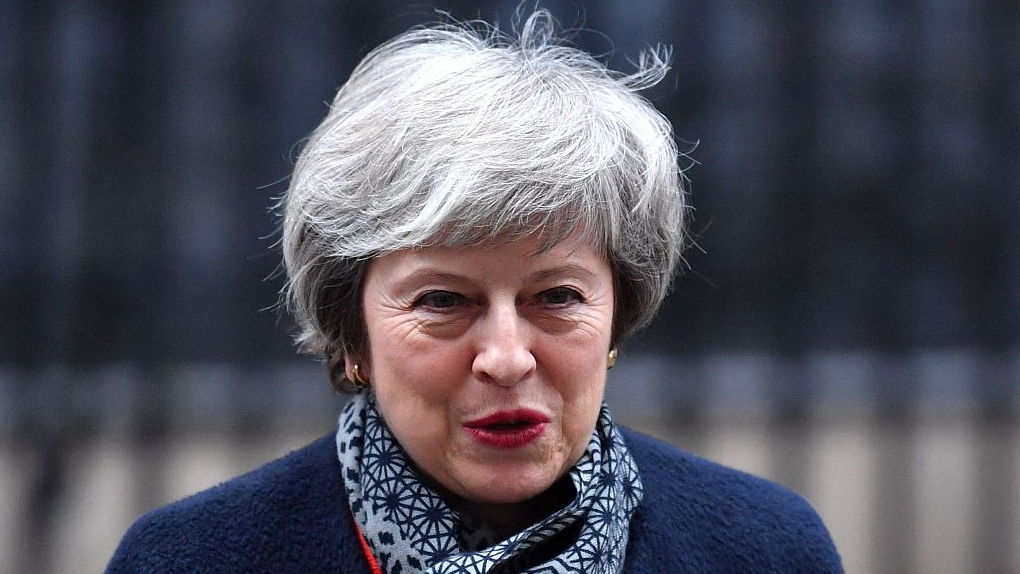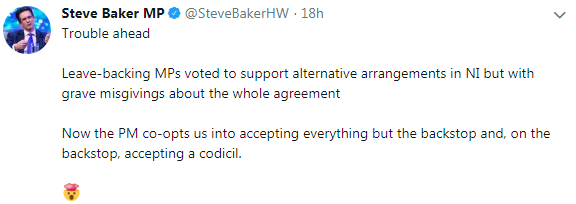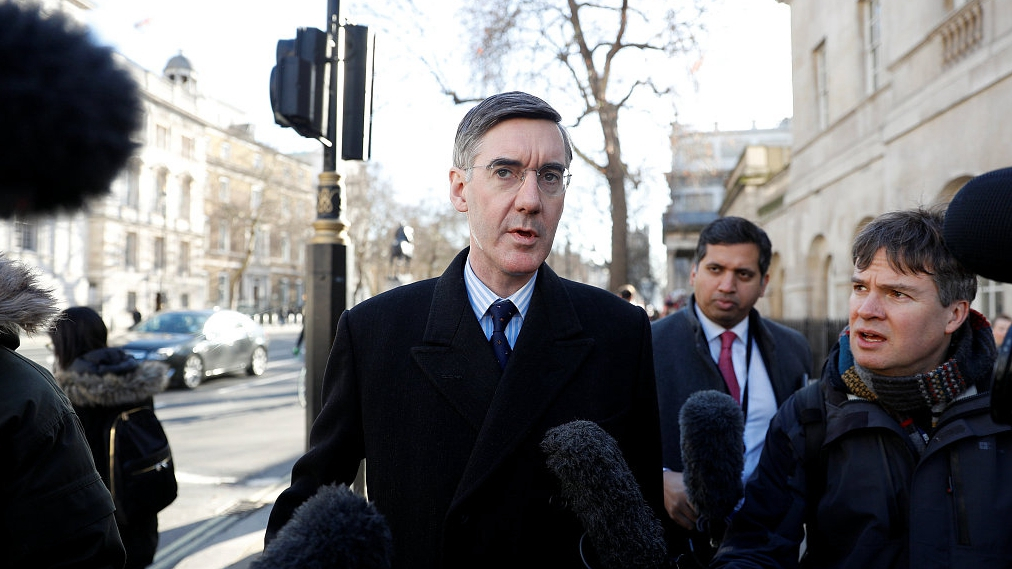
Europe
13:20, 04-Feb-2019
May plots 'pragmatic' path through Brexit maze
By John Goodrich

Brexit talks between the United Kingdom and the European Union recommence this week, with British Prime Minister Theresa May under pressure to win concessions and delay the exit date.
May wrote in a Sunday newspaper article that she would seek a "pragmatic solution" in negotiations with the EU, and argued that MPs had shown in a vote last week they would back her deal with changes to the Irish backstop.
Given that the EU has repeatedly stated that the withdrawal agreement – which includes the backstop – will not be reopened, the prime minister is expected to seek a codicil to the pact that reduces the chances of the backstop coming into effect.
However, hardline members of May's Conservative Party moved swiftly on Sunday to make clear that such a side deal – which the prime minister is far from certain to be offered – would not receive their backing.

Twitter screenshot
Twitter screenshot
Prominent euroskeptic MP Steve Baker tweeted that a codicil alone would lead to "a further substantial defeat for the agreement," and pressed for the "Malthouse Compromise" – a proposal which would see the backstop renegotiated and the transition period extended – to be pursued.
Baker is one of a number of MPs in the European Research Group (ERG) faction of the Conservatives who are unlikely to back a deal unless the withdrawal agreement is reopened.
Jacob Rees-Mogg, chairman of the ERG, was quoted by The Times on Monday as saying: "Neither a unilateral withdrawal or an end date solve the problems of the backstop. Replacing the current backstop entirely is something all sides could accept."

Conservative MPJacob Rees-Mogg in London, Britain, January 28, 2019. /VCG Photo
Conservative MPJacob Rees-Mogg in London, Britain, January 28, 2019. /VCG Photo
The faction's insistence on the removal of the backstop has led the government to reach out to waverers on opposition benches, with reports that several Labour MPs have been offered extra funding for their constituencies.
The best path to victory for May, when the next vote is held on February 14, now looks to be retaining the support of some of her skeptical MPs and winning over Labour members who represent leave-backing constituencies.
It's a delicate balance. May cannot move decisively without risking losing parts of the support she won on January 30. The most likely tactic is to do little – strike small revisions with the EU and make promises to selected Labour MPs in the hope of holding a majority.
Whether the government believes the February 14 vote is winnable is uncertain. On Sunday, May's office was forced to deny newspaper reports that a plan to delay Brexit, push through a vote in April and hold an election in June was being considered.
In the background, senior ministers from the foreign secretary to the international trade secretary, have softened the ground for a delay to the Brexit date despite May's promise on Sunday that it will be delivered "on time - on March 29, 2019."
If May is backed in parliament, the extensive resulting legislation will need to be passed in a maximum of six weeks unless a delay is agreed, which would be tough to achieve.
If May cannot push through her plan, a no-deal is the only viable option without a delay – and several ministers are expected to resign unless a no-deal is taken off the table soon.
In the buildup to the latest crunch vote, a delayed Brexit date looks increasingly likely.

SITEMAP
Copyright © 2018 CGTN. Beijing ICP prepared NO.16065310-3
Copyright © 2018 CGTN. Beijing ICP prepared NO.16065310-3